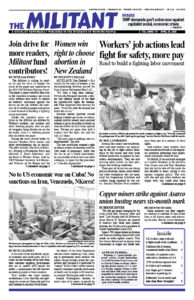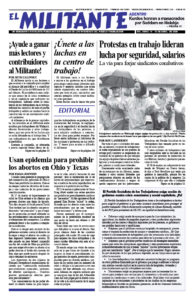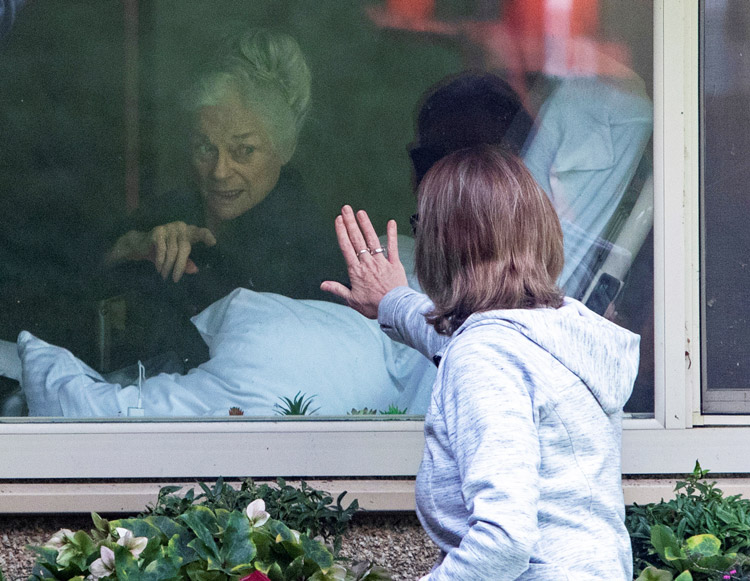NEW YORK — The responses of the capitalist bosses and their governments to the spread of coronavirus — both what they have not done to prepare and what they are doing to defend their profit-driven system — is taking a heavy toll on working people in many ways.
Essential needs like 12-step program meetings — the regular, face-to-face peer gatherings key to recovery for alcoholics and addicts, as well as their spouses and families — have been forced to close by shelter-in-place and lockdown edicts, and bans on even small gatherings, here and elsewhere.
“The worst thing for an alcoholic is isolation,” Reagan Reed, director of New York’s Inter-Group Association of Alcoholics Anonymous, told the Daily News March 20. “Having your butt in that chair, listening to others share their experiences, is really what’s so necessary.”
Tens of thousands of group meetings in church basements, YMCAs, and community rooms across the country have had to shut down — even though they had been following “social distancing” and other precautions. Now, their members have been scrambling to hold “meetings” by video or telephone conferencing, for many of which have become a lifeline.
But, as with all social questions under capitalism, this one also has a differentiated impact on working-class members who don’t have access to internet, webcams, or a quiet and private place to join in from. And, of course, if you’re a drinking alcoholic you very well might have lost everything already.
The efforts of 12-step programs to reach active alcoholics and addicts include telephone interaction and mailings. But almost without exception, everyone involved in them will tell you there is no substitute for face-to-face meetings either in a group or with a sponsor — someone with more experience who can help a newcomer.
“I am not hip to that web stuff,” an AA member who asked to remain anonymous told me. “I’ll do it if I have to, but online is just not the same.”
Simultaneously with online “meetings” some smaller groups have continued to gather at parks and open places while maintaining recommended precautions. “Fellowship” — groups going out for a meal or just hanging out together after meetings — is as important as attending meetings, but has become almost impossible to do.
Social isolation and depression are also big concerns for families whose spouses and relatives have been sequestered in senior living centers and denied all visitors by industry bosses and federal government mandates. They are being denied company, love and friendly faces, and vital monitoring and the essential care relatives provide.
As part of their drive to maximize profits, the owners of the health care system have pushed everything from “telemedicine” to “teletherapy” down our throats as acceptable replacements for live medical or mental health care for workers.
Such restrictions mean nothing to the Wall Street brokers and others who produce nothing of social value, as they flee the city for second or third homes in the Hamptons and elsewhere. These are the zip codes best stocked with doctors and hospitals with the most up-to-date gear for those with the money to pony up.
For working people struggling to keep working, producing everything from food to medical equipment, our morality is built on community solidarity, and joint actions in defense of fellow workers. We far prefer face-to-face human interactions and neighborliness.


